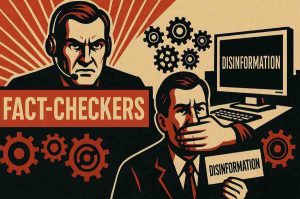Why government employees should not have the right to vote

The inherent conflict between employment and influence
Government employees play a central role in maintaining the structure, stability, and functioning of the state. They implement policy, enforce laws, manage budgets, regulate industries, and ensure that social programs operate effectively. Their work affects millions of citizens every day, and the quality of their decisions can have far-reaching consequences for society. Because of this unique responsibility, government employees must be evaluated on objective criteria such as efficiency, compliance with laws, and the achievement of public goals, rather than on personal or political preferences. Allowing government employees to vote creates an inherent conflict of interest. Voting gives them indirect influence over elected representatives whose policies and budgetary decisions determine the evaluation of their work, promotions, salary increases, and departmental assignments. This dual role can subtly, or overtly, encourage employees to favor political outcomes that benefit their personal or professional standing, undermining neutrality and public trust (The Prussian Civil Service, Stein).
Historical evidence supports this concern. In 19th-century Prussia, civil servants were explicitly prohibited from political activity to prevent conflicts of interest. They were expected to execute government decisions faithfully, regardless of personal opinion or political inclination. This separation of employment and political influence ensured that policies were implemented impartially and that employees could be judged solely on merit and performance, not political loyalty (The Prussian Civil Service, Stein). In modern states, where governments manage far more complex systems including healthcare, education, infrastructure, and welfare, allowing employees political influence over their own oversight is an even greater risk.
Neutrality as the cornerstone of good governance
Neutrality is a foundational principle of effective governance. Government employees must administer laws and execute policies without bias, favoritism, or personal interest. Allowing employees to vote introduces the possibility that their professional judgment could be influenced, consciously or unconsciously, by political considerations. For example, a tax officer might subtly favor policies that enhance the department’s budget, a regulatory inspector might adjust enforcement priorities to support a politically aligned agenda, or a social worker might interpret guidelines differently depending on the prevailing political climate (Bureaucracy and Political Neutrality, Wilson).
International comparisons reveal the importance of neutrality. In countries where government employees are politically active, patronage and favoritism frequently emerge. In parts of Latin America, studies have shown that political involvement by public employees led to misallocation of resources, reduced quality of service delivery, and an increased likelihood of corruption. Citizens lost confidence in government decisions when policy implementation appeared to serve political ends rather than the public interest (Public Administration and Neutrality, Peters). These cases demonstrate that neutrality is not merely theoretical but essential for maintaining fairness and legitimacy in governance.
Lessons from other professional norms
Professional ethics in other fields provide a useful precedent. Judges, auditors, and regulators face strict restrictions on political engagement because of the potential for conflicts of interest. Similarly, government employees exercise authority over taxation, law enforcement, healthcare administration, environmental regulation, and other critical sectors. Historical evidence from Prussia shows that political neutrality was enforced to ensure that government employees remained impartial and effective. Other European nations adopted similar rules during the 19th and early 20th centuries, recognizing that impartial administration was crucial for state stability and public trust (The Prussian Civil Service, Stein).
Modern examples confirm this approach. Scandinavian countries enforce strict limits on political activities for senior government employees, requiring them to prioritize professionalism and impartiality. These measures have resulted in higher standards of public administration, greater public confidence, and lower levels of corruption compared to systems without such restrictions (Civil Service Ethics in Scandinavia, Hansen). Data from these countries also suggest that limiting political involvement reduces errors and policy misjudgments, making government administration more effective and equitable.
Meritocracy and the risk of political influence
Voting rights for government employees can undermine meritocratic principles, which are vital for effective administration. Political preferences can affect promotions, job assignments, and evaluations, creating incentives to support policies that benefit the employee or their department rather than society at large. In the United States, patronage systems in the early 20th century allowed political loyalty to outweigh competence in hiring and promotion decisions. Government employees engaged in political campaigns often advanced in rank based on partisan alignment rather than professional skill or performance (Bureaucracy and Political Neutrality, Wilson).
Maintaining meritocracy ensures that government work is performed by competent, qualified individuals rather than politically favored employees. By restricting voting rights, governments can protect merit-based evaluation systems, ensuring that performance, skill, and efficiency remain the key determinants of career advancement. Research indicates that neutral, merit-based systems deliver better outcomes, including higher service quality, more consistent policy implementation, and greater citizen satisfaction (Public Administration and Neutrality, Peters).
Historical precedents and contemporary debates
Historically, limitations on the political activity of government employees were widespread. In the 19th and early 20th centuries, employees in critical areas such as taxation, law enforcement, and regulatory oversight were restricted from participating in elections or political campaigns. The rationale was straightforward: employees should not influence or be influenced by policies that directly affected their duties and performance evaluations (Civil Service Ethics in Scandinavia, Hansen).
In contemporary Scandinavia, senior government employees are still expected to remain politically neutral. Studies show that countries with these restrictions report higher public efficiency, greater citizen trust, and fewer conflicts of interest than countries without similar rules (Civil Service Ethics in Scandinavia, Hansen). This suggests that neutrality is not merely a historical concept but a contemporary necessity, particularly in complex bureaucracies where employees’ decisions have wide-ranging consequences.
Common objections and rebuttals
Critics argue that denying voting rights to government employees is inherently undemocratic. While voting is a fundamental civil right, employees have alternative channels for influence, such as participation in advisory committees, internal policy consultations, and professional councils. Restricting voting ensures that influence is exercised responsibly and professionally, avoiding conflicts of interest that could compromise policy implementation (Public Service Employment Act, Government of Canada).
Another objection is that removing voting rights might demotivate employees. However, research demonstrates that government employees remain motivated when recognition, evaluation, and promotion are based on merit and performance rather than political loyalty. Neutrality can strengthen motivation because employees understand that career advancement depends on competence and results, not partisan alignment (Bureaucracy and Political Neutrality, Wilson). Furthermore, data indicate that countries restricting voting rights report higher public sector satisfaction and lower employee turnover compared to countries allowing unrestricted political participation.
International perspectives
Rules governing political participation of government employees differ worldwide. In Canada, the Public Service Employment Act restricts political activity for employees, particularly in senior roles, to preserve neutrality and public confidence (Public Service Employment Act, Government of Canada). In the United Kingdom, the Civil Service Code emphasizes impartiality and restricts political advocacy that could compromise public trust (Civil Service Code, UK Government).
Conversely, countries where employees are politically active, such as certain local governments in India and Latin America, demonstrate how bias and patronage can undermine efficiency and equitable service delivery. Political engagement in these contexts has been associated with higher corruption risk, unequal resource allocation, and deterioration of public infrastructure (Political Patronage in Local Governments, Smith). Comparative studies indicate that limiting voting rights consistently correlates with better neutrality, higher meritocracy, and more effective public administration (Public Administration and Neutrality, Peters).
Broader societal importance
Government employees influence taxation, social benefits, law enforcement, education, environmental regulation, and healthcare administration. Even minor personal biases can have major consequences. Restricting voting ensures that policy implementation serves the public interest rather than personal gain, preserving consistency, reliability, and fairness in governmental decision-making (Public Administration and Neutrality, Peters).
Perception of neutrality is as important as actual neutrality. Citizens must trust that government employees operate independently and are not politically motivated. This trust enhances compliance with laws, strengthens institutional legitimacy, and contributes to social stability (Public Trust and Bureaucracy, Hood). Countries that uphold these principles report higher citizen satisfaction, fewer complaints of corruption, and more consistent and effective public policy execution.
The cumulative impact on democracy
While it may appear counterintuitive, restricting voting rights for government employees does not weaken democracy. On the contrary, it reinforces democratic governance by ensuring that the machinery of government operates impartially and that citizens receive fair and unbiased administration. Democracy relies on checks and balances, and impartial civil administration is a critical check on political power. Allowing employees to vote on policies that directly affect their own work blurs this separation of powers, creating systemic conflicts that can compromise both efficiency and legitimacy (The Prussian Civil Service, Stein).
By protecting neutrality, governments preserve meritocracy, reduce corruption risk, maintain public trust, and ensure that administrative decisions reflect collective societal interests rather than individual political advantage. Historical, international, and contemporary evidence consistently supports this approach as a cornerstone of effective, fair, and sustainable governance (Civil Service Ethics in Scandinavia, Hansen; Public Administration and Neutrality, Peters).


















